Imperial celebrates its latest graduates at Commemoration Day 2019
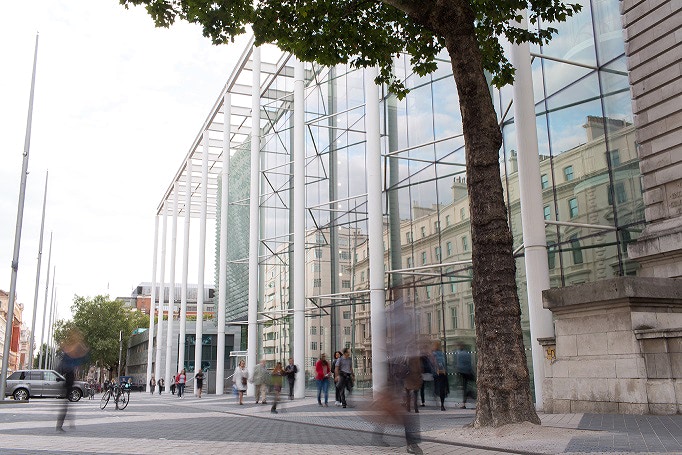
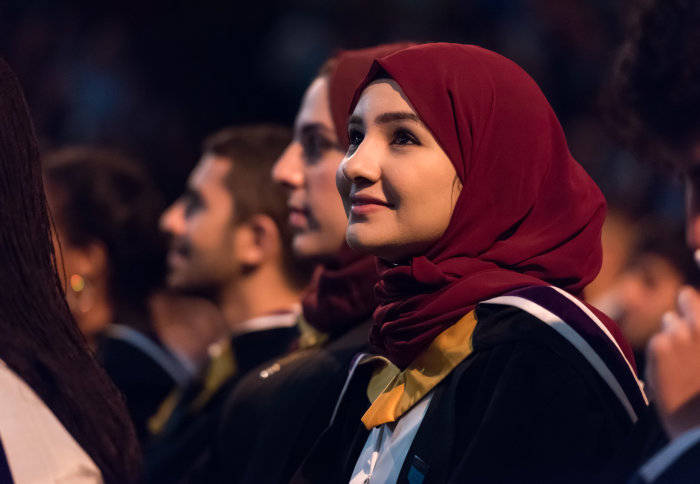
Over 2,400 students will attend three ceremonies in the Royal Albert Hall to receive their undergraduate degrees.
Over 6,300 guests will fill the Royal Albert Hall to celebrate the achievements of the graduating students during three ceremonies, while family and friends around the world can join in with celebrations from afar thanks to a livestream of the ceremonies.
The graduating students will join an international network of 200,000 alumni worldwide.
Commemoration Day, the College’s undergraduate graduation day, is held in October each year. It is named in honour of a visit to Imperial by King George VI and Queen Elizabeth in 1945, on the centenary of the foundation of the Royal College of Chemistry, Imperial’s oldest forerunner. The ceremonies have been held in the Royal Albert Hall for more than 60 years.
Making the world a better place
Addressing the audience of graduands and guests, Professor Alice Gast, President of Imperial College London said: “I hope you will take your experience and your wisdom into many new relationships and communities. In doing so you will make the world a better place.
“Sharing ideas and building lasting relationships will be valuable lifelong assets. I hope you leave with the distinct sense of the value of community.”
Contributions to College life
During the ceremonies Imperial honoured those who have made contributions to the College, research and wider society with honorary degrees and Imperial College medals.
The College conferred honorary degrees on the following people:
Professor Dame Linda Partridge who has become one of the most eminent biologists over the past 40 years and profoundly shaped our understanding of the evolution and mechanisms of ageing.
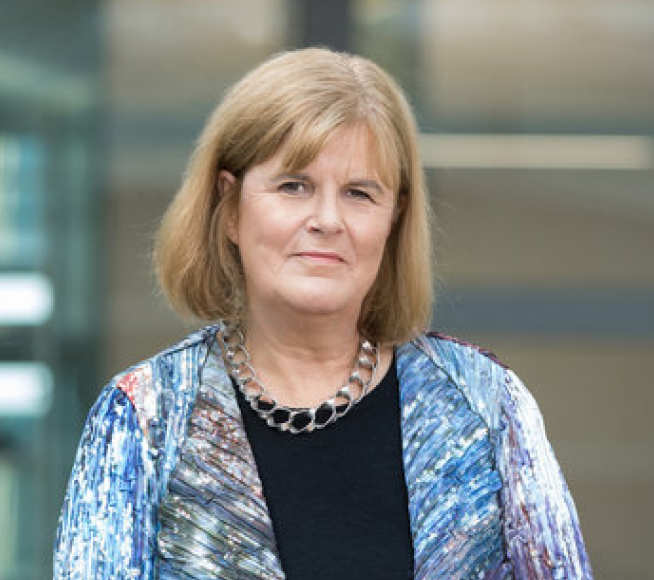
Professor Dame Linda Partridge
Using ingenious experiments in many different organisms, ranging from fruit flies to humans, she has shown how damage in cells is accumulated with age and how ageing-related decline can be slowed down by genes, environment and drugs. She found that mechanisms of ageing are strongly conserved over large evolutionary distances between species. She was among the first scientists to combine mathematical and quantitative models of biological processes and systems with experimental and observational studies.
Through her research, training and mentoring as well as her services on committees and for public bodies, her work will have profound scientific, medical and societal implications as humans live longer.
She received an Honorary Degree of Doctor of Science in recognition of her outstanding contribution to the biological sciences.
Dr Ian Shott is one of the UK’s most successful entrepreneurs and business leaders in pharmaceuticals and the life sciences.
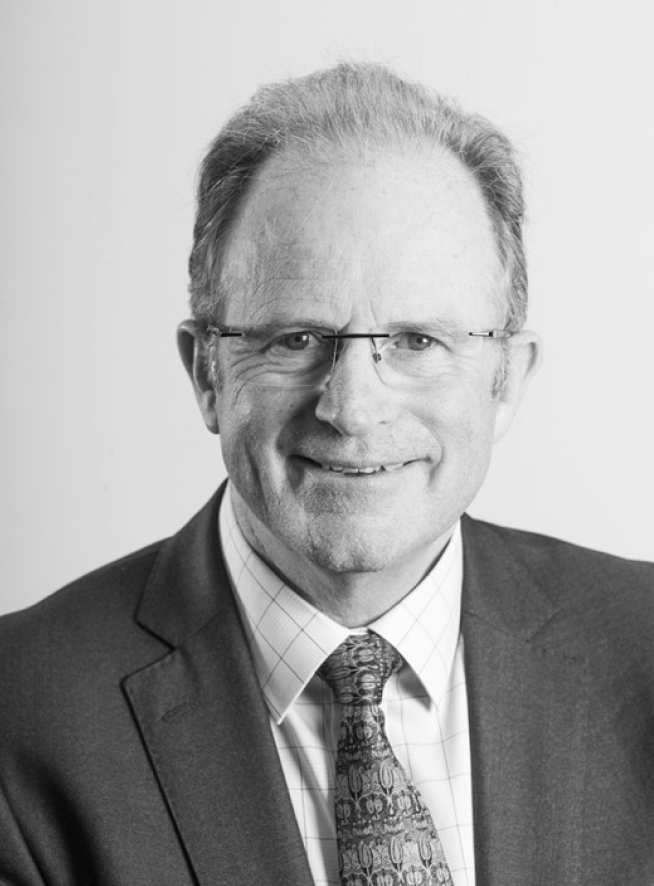
Dr Ian Shott
For over 20 years, he has excelled in leadership roles at numerous global multi-national businesses in the international life science industry. In all these roles he has created successful strategies that developed a steep change in their growth. He founded Excelsyn in 2004 and went on to set up Arcinova, where he is now Executive Chairman and Chief Executive Officer.
While leading at the forefront of the UK’s biosciences revolution, Dr Shott brings his influential strategic skills to Imperial College London. Since 2013 he has been a highly energetic Chair of the College’s Chemical Engineering Strategic Advisory Board and a valued advisor to the Centre for Process Systems Engineering.
He received an Honorary Degree of Doctor of Science in recognition of his contribution to the field of chemical engineering.
Dr Menelas Pangalos is an internationally renowned expert in neuroscience and drug discovery. Having started his illustrious academic and professional career at Imperial College London, he is now Executive Vice-President of BioPharmaceuticals Research and Development at AstraZeneca.
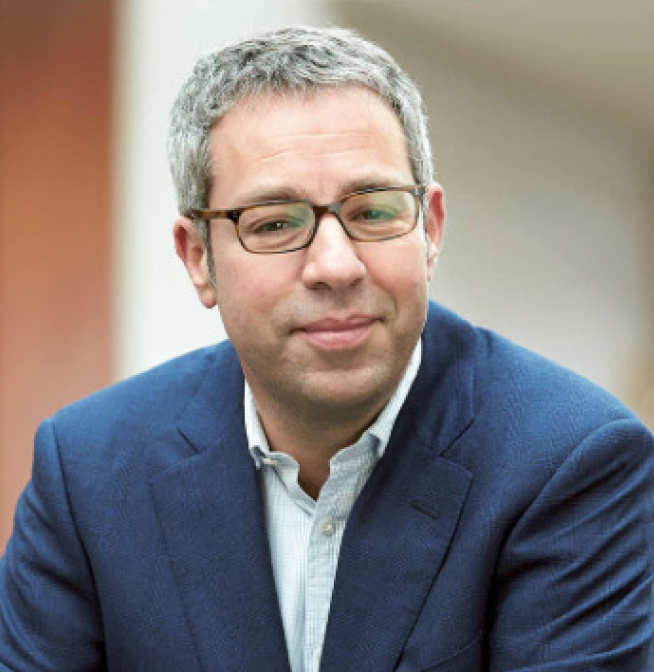
Dr Menelas Pangalos
His colleagues at AstraZeneca credit Dr Pangalos with being instrumental in rebuilding their commitment to scientific excellence and a culture of great science and truth-seeking behaviours. During his time in this role, he has deepened their collaborations with academic, biotech and peer organisations. He is also overseeing the creation of AstraZeneca’s new multi-million-pound research centre in Cambridge, and plays an important role on a variety of governmental Boards influencing the future of the UK life science.
He was awarded an Honorary Degree of Doctor of Science in recognition of his contribution to UK Science and the pharmaceutical industry.
Imperial College Medals
The following people received Imperial College medals in recognition of their considerable contributions to the life and work of the College:
- Professor James Best, Dean of the Lee Kong Chian School of Medicine, for being an inspirational teacher, researcher, clinician and medical leader.
- Professor Jeff Magee, President’s Envoy, Department of Computing, for impressive academic and leadership skills in the Faculty of Engineering.
- Dr John Shemilt, retired Director of ICT, for decades of committed service and implementation of vital and innovative information technologies.
- Louise Lindsay, Director of Human Resources and Organisational Change, for spearheading positive cultural improvements for staff and a commitment to supporting all members of the College community.
- Malcolm Aldridge, retired Financial Controller, for his dedicated service to Imperial College London across nearly four decades.
- Professor Peter Cheung, Department of Electrical and Electronic Engineering, for his exceptional and long-standing impact on education, research and leadership at the College.
- Roger Pownall, Support Services Manager, for long service and contributions to the College
- Tracy Halsey, Head of the Early Years Education Centre, for more than 30 years of exceptional service and tireless support to the Imperial families that require safe, secure childcare.
- Trever Chambers, Head of Reactor Centre, for successfully managing a complex and challenging decommissioning programme in a pragmatic and professional manner.
Outstanding students
At the ceremony, Imperial awarded Outstanding Student Achievement Awards to the following students:
- Medical students Aida Abdelwahed and Nour Houbby for their commitment to helping marginalised patients and making a meaningful difference to their health and wellbeing.
- Medical students Ayesha Ahmad and Simon Thackray for working tirelessly to develop activities that support and encourage pupils from deprived and diverse backgrounds to pursue a career in medicine.
- Haron Shams, who co-founded Imperial’s first ever Machine Learning Society alongside his studies, showing astounding commitment and drive to making Imperial a leader in the field of AI.
- Kenza Tazi for her dedication to supporting her peers as well as a passion for inspiring future scientists with projects that offer outstanding public engagement opportunities.
President’s Medals
The President’s Awards for Excellence are annual awards to recognise staff members who have made outstanding contributions in Education, Research or Societal Engagement. Those awardees judged to have made particularly exceptional contributions are selected to receive the President’s Medal.
The President’s Medal for Excellence in Societal Engagement was awarded to Dr Annalisa Alexander, Head of Outreach, for her tireless work which has benefited tens of thousands of school-aged students.
The President’s Medal for Outstanding Contribution to Teaching Excellence was awarded to Dr Arti Maini, Deputy Director of Undergraduate Primary Care Education, for her commitment to empowering medical students and improving medical education.
The President’s Medal for Excellence in Culture and Community was awarded to Professor Martin Liebeck from the Department of Mathematics for being a great expositor of mathematics, one of the department’s most popular lecturers, a brilliant mentor and a committed PhD supervisor.
The President’s Medal for Outstanding Contribution to Teaching Excellence was awarded to Mr Martin Lupton, Vice-Dean in Education for the Faculty of Medicine, for putting student engagement at the top of his agenda and displaying a genuine passion for education.











Responses